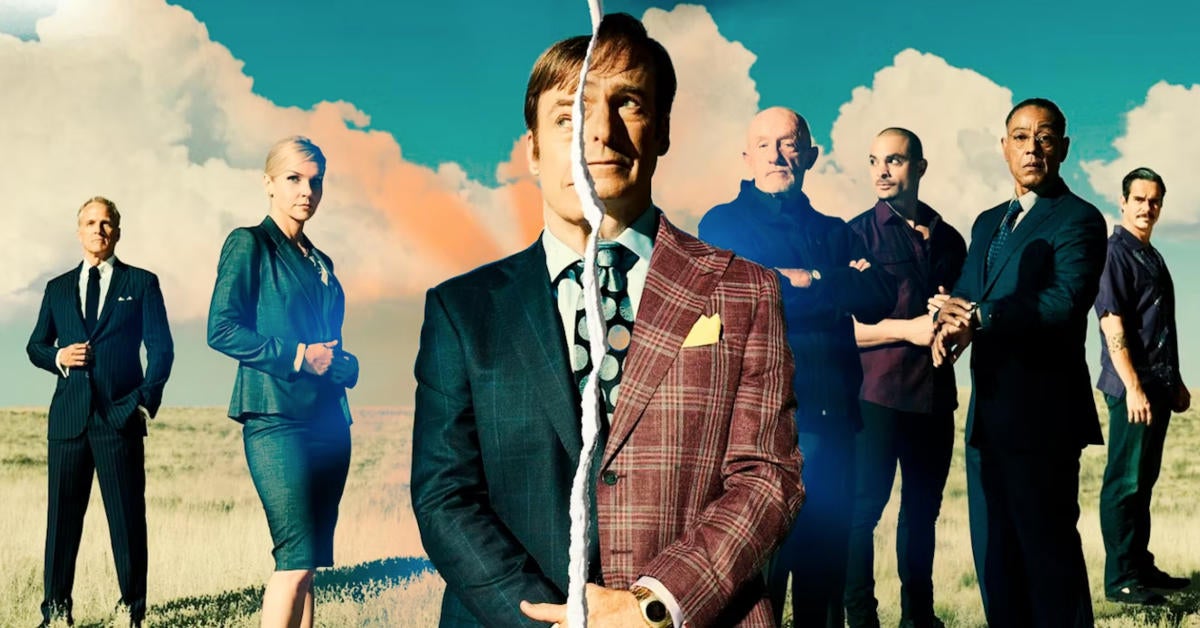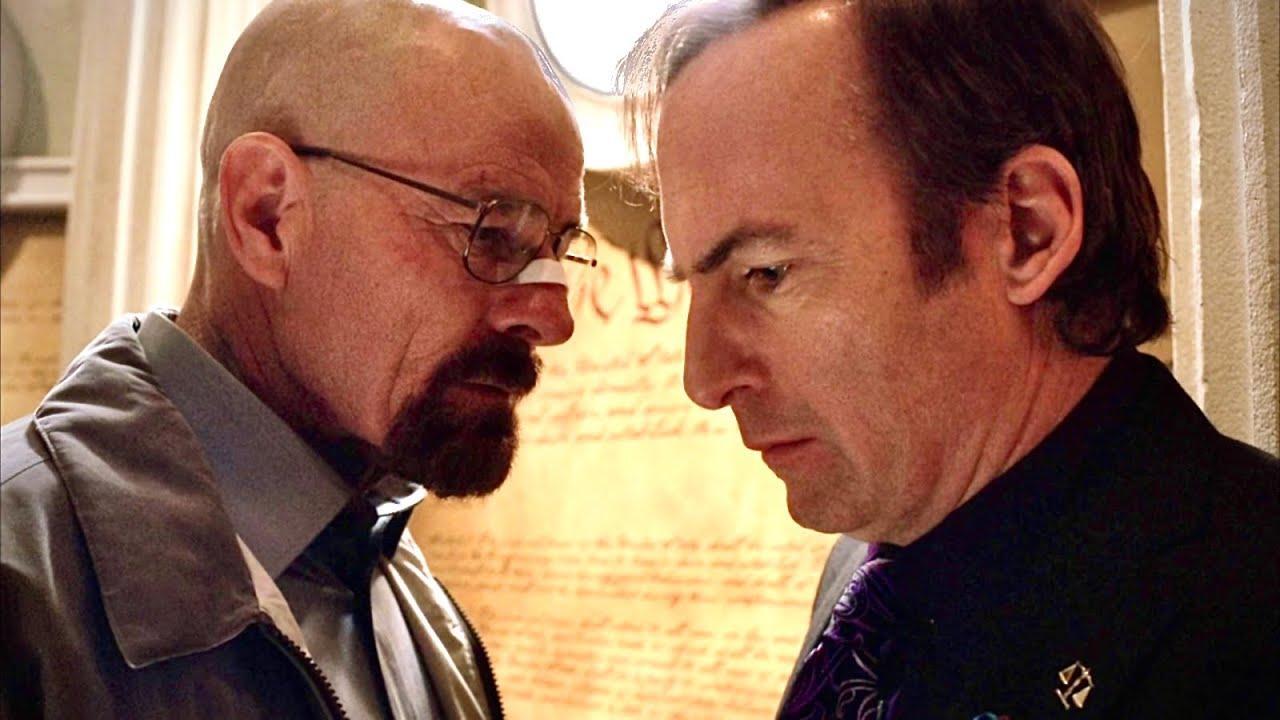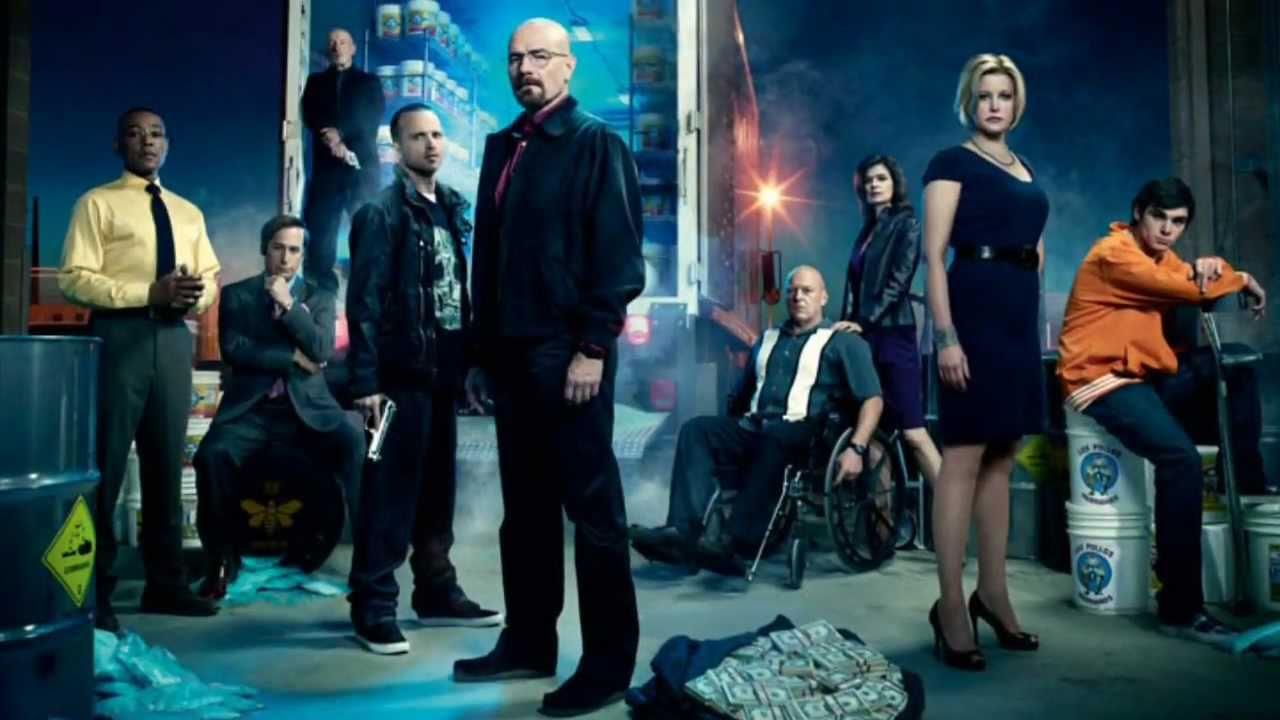Is Better Call Saul Better Than Breaking Bad?
Is Better Call Saul better than Breaking Bad? The debate has been raging for years – but now Better Call Saul is officially over, allowing us to look at both series from the mind of Vince Gilligan. The question is a precarious one to be sure: anyone who has watched both shows knows that there are very distinct differences in the hard-boiled crime drama of Breaking Bad and the slow-burn legal-drama-turned-crime-drama run of Better Call Saul. However, the obvious connection between the two shows makes comparison inevitable.
So who wins out in the battle of Breaking Bad vs. Better Call Saul?
Themes

The closest link between Breaking Bad and Better Call Saul is no doubt the thematic bridge of just how deep of an all-corrupting descent one can be stuck in when chasing the vices of money, power, and fame (or infamy).
(SPOILERS) It's a bridge that is beautifully revisited in Better Call Saul's series finale episode, "Saul Gone", in a flashback sequence to when Saul (Bob Odenkirk) and Walter White (Bryan Cranston) were on the run and in hiding after the meth empire started to crumble. The pair have a conversation about regrets, which ends up being more of a reflection of why both men took their respective steps into criminality – and subsequently, what the thematic point of each show is. The big conclusions (indirectly referenced in the scene) are that Walter White became a criminal overlord ultimately as a way to somehow recapture his own squandered ambition before he died. Saul, on the other hand, has to come to face that the fact that he is (as his brother Charles always said) someone who was born a bad apple, and always returns to that basic nature. Walter White arguably does what he set out to do, by becoming one of the most infamous drug lords ever, by the time he's left fatally wounded with cops closing in; Saul bends the law and perverts justice until the moment he chooses not to and condemns himself in court to an 80-year jail sentence.
Thematically, Breaking Bad and Better Call Saul almost achieve opposing goals: Breaking Bad details the cost of a good man turned evil; Better Call Saul details how an evil man ultimately seeks to find some good in himself. In that sense, both shows are equal in terms of effectively achieving their respective storytelling goals.
Characters

In terms of characters and character development, Better Call Saul arguably takes the win – but it's totally a rigged game.
Breaking Bad's central characters and antagonists (Walter White, Jesse Pinkman, Skylar White, Hank and Marie Schrader, Gustavo Fring, Saul Goodman, Mike Ehrmantraut) are now pretty iconic for the most part. However, Better Call Saul benefits from having had Breaking Bad come before it, and does arguably one of the best jobs of any prequel/sequel/interquel in terms of adding true depth and richness to side and supporting characters, while also affecting our view and understanding of the core series (Breaking Bad).
First and foremost is the obvious: Better Call Saul makes Jimmy McGill/Saul Goodman/Gene Takavic a wildly better and deeper character than the comedic relief he did in Breaking Bad. Saul's predatory nature as a con-man and villain-to-the-bone never shined through as brightly in Breaking Bad as it did over the six seasons of his own show. "Jimmy's" struggle to be something better than what Saul Goodman became is also tragic in nature – and more complicated than Walter White's quick and (eventually) almost cartoonish turn to villainy. It was also better than Jesse's circular rotation of increasing psychological trauma and damage.
Better Call Saul also did better with spreading the love around to its ensemble of supporting characters – leading with Rhea Seehorn as Kim Wexler, Jimmy McGill/Saul Goodman's fellow lawyer and perennial love interest. The difference between how Breaking Bad and Better Call Saul handled their respective female leads couldn't be starker: Kim always felt like a crucial component of the storyline, and an active player in the legal/criminal worlds Saul straddled – with none of the "angry wife" stereotyping that Anna Gunn's Skylar White was often criticized for (fairly or not).
Better Call Saul also made the master criminals of the franchise much more interesting, taking us deep inside the lives and psychologies of Gus Fring and Mike, making them even more layered and complex than Breaking Bad ever did. Saul also widened the lens to introduce (and ultimately kill off) additional members of the criminal cartel, like double-agent criminal Nacho Varga (Michael Mando), and the previously-unseen Salamanca family psycho, Lalo (Tony Dalton). Even characters in Saul that were arguably dry and boring early on – Michael McKean's Chuck McGill, Patrick Fabian's Howard Hamlin – ultimately became crucial pieces in the story, with fates that will haunt viewers for years to come.
To its credit, however, Breaking Bad's line of psychos like Tuco and Hector Salamanca, Gus Fring, twin Salamancas Marco and Leonel, Todd, Uncle Jack, and others were all plenty frightening and memorable – even if they were less complex in characterization.
Story

Looking at it thematically, Breaking Bad and Better Call Saul both (as stated) do the job of telling their respective tales of falling into (or climbing out of) the Abyss rather well. However, in terms of which story viewers can more readily absorb? The edge may go to Breaking Bad.
Better Call Saul is not the undisputed winner of "best Breaking Bad Universe series" largely because it requires more serious viewer commitment. The crime-a-minute and back-against-the-wall thrills of Breaking Bad were constantly giving viewers payoff and excitement to keep them coming back every week (and binge-watching on streaming). Better Call Saul takes its good time getting out of the early days of Jimmy McGill trying to be on the straight and narrow as a lawyer, with Gus Fring and the Breaking Bad criminal world not really coming into the picture until Season 3.
In terms of getting people to actually sit down and watch, Better Call Saul doesn't really have a lot of wide access points without Breaking Bad as a precursor. Even if you've seen Breaking Bad, Better Call Saul still takes some major adjustment to get used to. Breaking Bad, meanwhile, is about as easy to fall into as any crime thriller ever has been.
-
In the end, the answer seems pretty clear: Breaking Bad is an easier experience to get into and enjoy – but Better Call Saul is ultimately the more rewarding one.
1comments